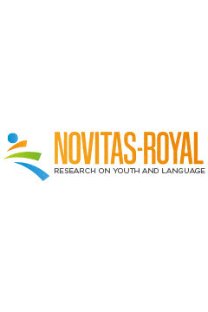A Contrastive Corpus-based Analysis of the Use of Reporting Verbs by Native and Non-native ELT Researchers
Anadili İngilizce Olan ve Anadili İngilizce Olmayan İngiliz Dili Eğitimi Araştırmacılarının Aktarım Filleri Kullanımlarının Karşılaştırmalı Derlem Temelli Analizi
___
- Charles, M. (2006). Phraseological patterns in reporting clauses used in citation: A corpusbased study of theses in two disciplines. English for Specific Purposes, 25(3), 310-331.
- Dubois, B. L. (1988). Citation in Biomedical Journal Articles. English for Specific Purposes, 7, 181-193.
- Fraysse-Kim, H. S. (2010). Keywords in Korean national consciousness: A corpus-based analysis of school textbooks. In Bondi, M. & Scott, M. (Eds.), Keyness in texts (pp. 219 – 233). Amsterdam, John Benjamins Publishing Co.
- Gilbert, N. G. (1977). Referencing as persuasion. Social Studies of Science, 7, 113-22.
- Granger, S. (1998). The computer learner corpus: a versatile new source of data for SLA research. In Granger, S. (Ed.) Learner English on Computer (pp. 3–18). Longman: London.
- Hanania, E. & Akhtar, K. (1985). Verb forms and rhetorical function in science writing: A study of MS theses in Biology, Chemistry and Physics. ESP Journal, 4(1), 45-58.
- Hyland, K. (1999). Academic attribution: Citation and the construction of disciplinary knowledge. Applied Linguistics, 20 (3), 341-367.
- Jafarigohar, M. & Mohammadkhani A. (2015). Reporting verbs in Applied Linguistics research articles by native and non-native writers. Theory and Practice in Language Studies, 5(12), 2490-2496.
- Loi, C. K. (2012) A corpus-based analysis: the use of citations. In: Conference proceeding International Conference: Innovative Research in a Changing and Challenging World, 16 – 18 May 2012, Phuket, Thailand.
- Malcolm, L. (1987). What rules govern tense usage in scientific articles? English for Specific Purposes, 6, 31-44.
- Manan, N. A. & Noor, N. M. (2014). Analysis of reporting verbs in Master’s theses. Procedia - Social and Behavioral Sciences, 134, 140 – 145.
- Mansourizadeh, K. & Ahmad, U. K. (2011). Citation practices among non-native expert and novice scientific writers. Journal of English for Academic Purposes, 10, 152–161.
- Oskueia, M. H. H. & Kuhi, D. (2014). The use of citations in academic writing: Analysis of introduction sections of Iranian and native English master’s theses. Journal of Social Issues & Humanities, 2 (3), 216-220.
- Petric, B. (2007). Rhetorical functions of citations in high- and low-rated master’s theses. Journal of English for Academic Purposes 6, 238–253.
- Pickard, V. (1995). Citing previous writers: what can we say instead of ‘say’? Hong Kong Papers in Linguistics and Language Teaching, 18, 89-102.
- Shaw, P. (1992). Reasons for the correlation of voice, tense, and sentence function in reporting verbs. Applied Linguistics, 13(3), 302-19.
- Swales, J. (1981). Aspects of article introductions. Birmingham: University of Aston.
- Swales, J. M. (1990). Genre Analysis: English in Academic and Research Settings. Cambridge: Cambridge University Press.
- Swales, J. & Feak, C. B. (2004). Academic writing for graduate students: Essential Tasks and Skills. (2nd ed.). Ann Arbor: The University of Michigan Press.
- The University of Adelaide. (2014). Reporting Verbs Used in Academic Writing. Academic Writing Center. Retrieved from http://www.adelaide.edu.au/writingcentre/learning_guides/learningGuide_verbsForRep orting.pdf
- Thomas, S. & Hawes, T. (1994). Reporting verbs in medical journal articles. English for Specific Purposes, 13(2), 129-48.
- Thompson, G. & Ye, Y. (1991). Evaluation in the reporting verbs used in academic papers. Applied Linguistics, 12(4), 365-82.
- Thompson, G. (1996). Voices in the text: discourse perspectives on language reports. Applied Linguistics, 17, 501-530.
- Thompson, P. (2000). Citation practices in Ph. D. theses. In Burnard, L. & McEnery, T.
- (Eds.), Rethinking language pedagogy from a corpus perspective: papers from the Third International Conference on Teaching and Language Corpora (pp. 91-101). Frankfurt: Peter Lang.
- Weissberg, R. & Buker, S. (1990). Writing up research: experimental research report writing for students of English. New Jersey: Prentice Hall.
- Yeganeh, M. T., & Boghayeri, M. (2015). The Frequency and function of reporting verbs in research articles written by native Persian and English speakers. Procedia - Social and Behavioral Sciences, 192, 582-586.
- Zhang, X. (2008). A Contrastive Study of Reporting in Master’s Theses in Native Chinese and in Native English. (Unpublished master’s thesis). The University of Edinburgh, Edinburgh.
- ISSN: 1307-4733
- Yayın Aralığı: 2
- Başlangıç: 2007
- Yayıncı: -
Yaygın Okumanın Sesbilimsel İşlemenin Gelişimi Üzerine Etkisi
Madina HÜSEYİNOĞLU, ESİM GÜRSOY
Teacher Learning during Transition from Pre-service to Novice EFL Teacher: A Longitudinal Case Study
A Display of Patterns of Change in Learners’ Motivation: Dynamics Perspective
ÖZGE SELÇUK, İsmail Hakkı ERTEN
Yabancı Dil Öğrencilerinin Günlük İfadelerin Kullanımı Konusunda Görüsleri
MAİDE YILMAZ, ZEYNEP ÖZDEM ERTÜRK
Effects of CDA Instruction on EFL Analytical Reading Practices
